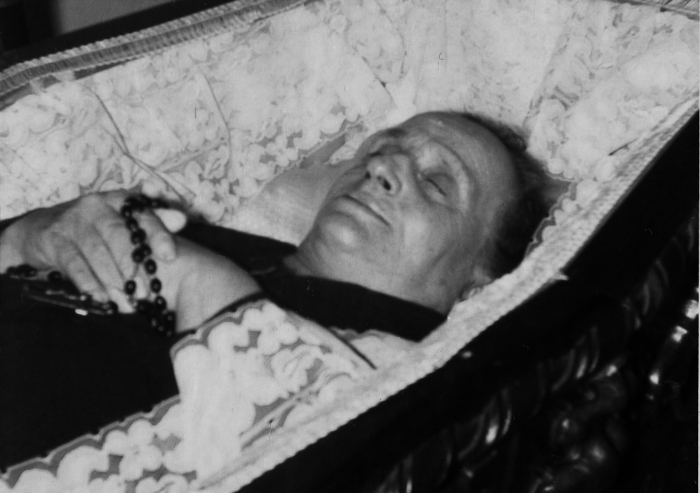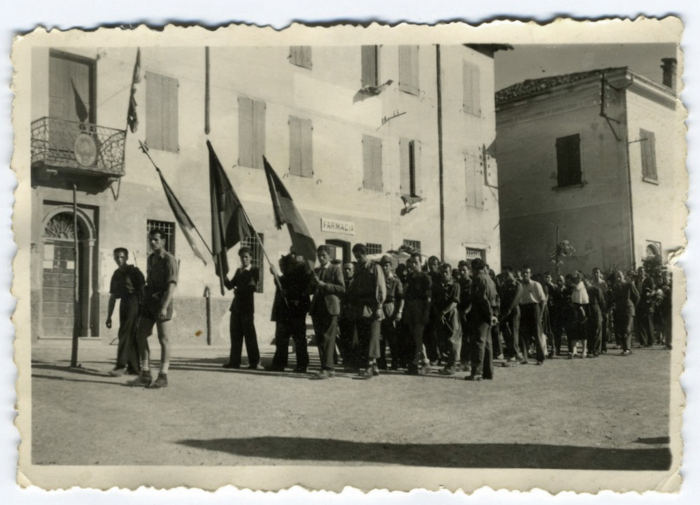The vigil and the farewell to a partisan’s mother
by Sonia Maria Luce Possentini
I was seven years old, a month more, a month less.
In the seventies. It was November, I remember it well.
There was a mess at home. A muttering in a low voice.
A tormented silence.
The dinner served late.
Mum and dad that weren’t coming back home.
I tried to play with my sister, but I was waiting.
Inside my belly I felt that something had happened.
Something bad.
My great-grandmother, that I called granma, was dead.
A generous and clever woman, according to people’s screams.
Nilde, that was her name.
She had sewn the flag on the coffin of my uncle, partisan martyr.
She had sewn my socks. She had sewn my clothes.
Embroidered the curtains of my aunt’s house. Knitted my pullovers.
The white collars of my school uniform. Combed my long hair.
I remember her partially. But absorbed in work. Always.
Melancholic.
She had lost two children. Brought up my father. Resolute.
They dressed me up.
“Properly”, a simple dress (always the same for every special occasion)
in midnight blue velvet, as my mother used to say.
A white lace collar. A knot and they brought me to my grandma.
That day, I remember it well. It was raining.
The heavy mist on the plain was thick.
The non colour lingering motionless in the air was a question mark.
We have to keep vigil over your granny, you have to say goodbye to her for the last time. They told me.
These were the words, I tried to grab their meaning that I didn’t know.
But everything became clear as I went up the stairs of my aunt’s big house.
A smell, of something that is going away. Of something that is no longer here.
A smell of death.
Afterwards, when I climbed the stairs, I could hear the soft crying and, step after step, the crying that turned into screams.
My aunt’s screams.
Her race from room to room among cabinets and cardboard boxes.
She rummaged and cried. She cried and screamed.
Then she gracefully put letters, money and pictures inside grandma’s coffin.
She is going to need them, she said. She will be asked to pay, she said.
And then words. Many words.
But she is dead, isn’t she? I asked my mother, naïvely.
Yes, she is, she answered in a sweet voice.
She cried. And she screamed: “Look, it’s raining, nobody will come to see you… ”.
A pain that I recorded in my head as something that couldn’t ever be consoled. Everybody cried.
But she was crying as if somebody tore her heart away.
I ran to the balcony and, in a sort of picture that has become indelible for me, I saw an endless queue of people dressed in black with open black umbrellas and red flags that fluttered in the still air.
And the music that was everywhere and dealt with a flower…
That flower that I have learnt to know afterwards.
Red, black and white. This is the most vivid memory.
The one that still belongs to me.
There were a lot of people, my aunt was wrong.
So many people came to say goodbye to her. In the mist and the rain.
So many people that were softly singing the words of the flower.
They were singing on that journey.
A journey white as the mist, black as the thought and red as the passion.

